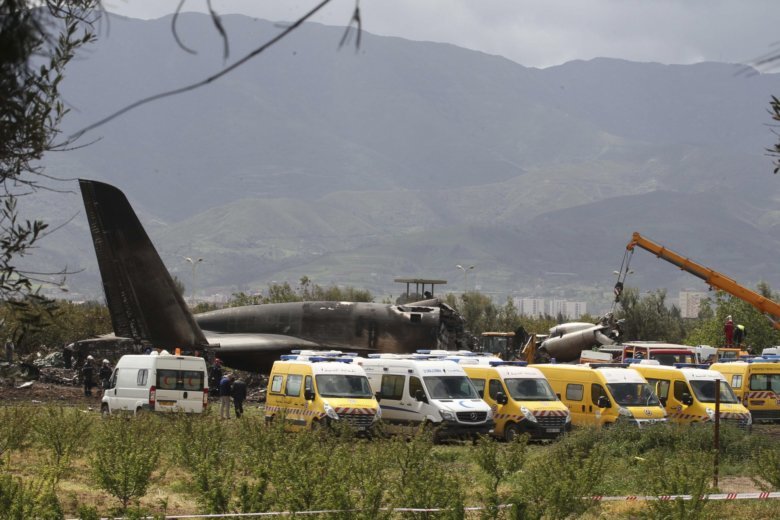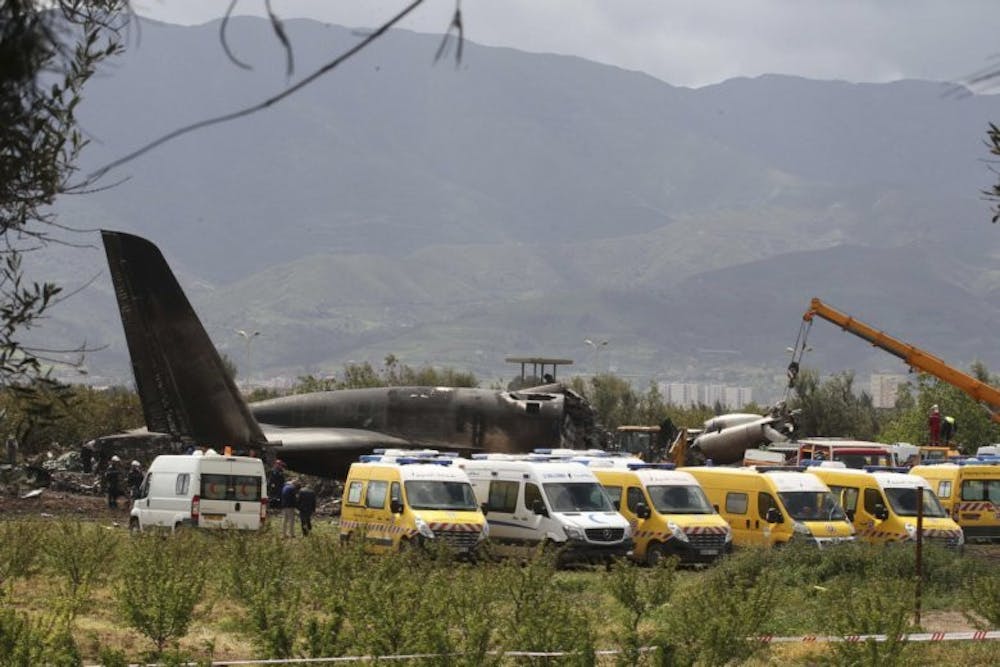By James Wright
Staff Writer
Algeria suffered its deadliest plane crash in history on April 11, killing at least 257 people and leaving few survivors, according to CNN.

The aircraft came down immediately after taking off from Boufarik military airport shortly before 8 a.m., west of the nation’s capital of Algiers. The Algerian Defense Ministry said that most of the passengers aboard were military personnel and their families, as well as 10 flight crewmen, according to BBC.
It was scheduled to fly from Boufarik and land in the border town of Béchar, which serves as an important base for the Polisario Front, a group seeking independent territory along the Moroccan border. The Polisario Front is backed by the ruling Algerian National Liberation Front (FLN) party. Among the crash victims were 26 Polisario members, according to BBC.
This is the second disastrous plane crash to strike the north African nation in the last four years. In July 2014, a Hercules C-130 military jet crashed on Algeria’s eastern coast, killing 77 people, according to The New York Times.
The Defense Ministry has opened an inquiry into the cause of the crash, which is still unclear, according to The New York Times. Onlookers near the Boufarik military base saw intense flames spiraling out of one engine as the plane lifted off the runway. Seconds later, the plane crashed violently into the ground.
“We saw bodies ... It was a catastrophe,” a witness said, according to CNN. “We were afraid the plane would explode. We covered some bodies and put out some fires.”
Algeria’s maintenance aviation record is problematic and has damaged the government’s reputation, according to BBC. The government has come under intense scrutiny for its lack of transparency.
There are claims that President Abdelaziz Bouteflika is a figurehead for the Algerian military, according to The New York Times. Bouteflika is wheelchair-bound and rarely makes public appearances, and many Algerians worry that the public will never learn the true reasons behind the crash.
“The people will resign themselves to it because there is no information,” said Lahouari Addi, a prominent Algerian political scientist, according to The New York Times. “There is no transparency in Algeria, no debate. The prime minister has no power.”







